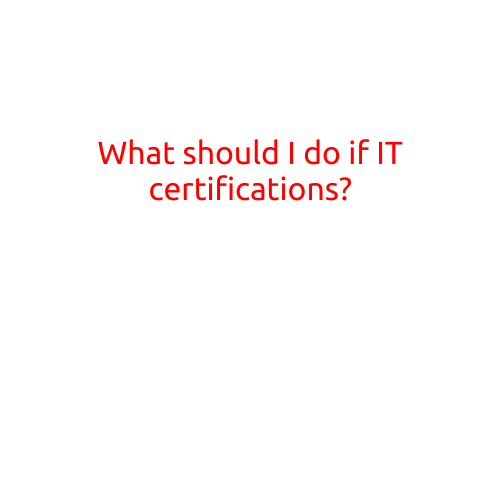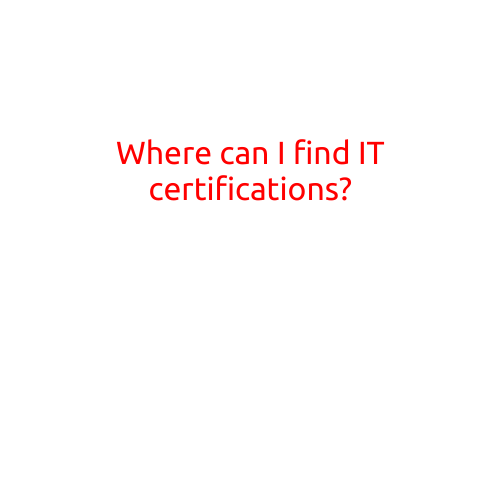
What Should I Do If I Have IT Certifications?
Congratulations! You’ve invested time and effort into obtaining one or more IT certifications. This is a significant accomplishment, and now you may be wondering what to do next. In this article, we’ll explore the various paths you can take to leverage your certifications and advance your IT career.
1. Continue Your Education
While certifications are an excellent way to demonstrate your expertise, they are just the beginning. To stay current with the latest technologies and industry trends, it’s essential to continue your education. Consider pursuing higher-level certifications, such as a master’s degree or pursuing a specialized certification in a specific area, like cybersecurity or cloud computing.
Additionally, attend conferences, workshops, and webinars to stay informed about the latest developments in your field. These events are excellent opportunities to network and learn from industry experts.
2. Pursue Specializations
With your IT certifications, you’ll likely have a solid foundation in a specific area, such as networking, security, or infrastructure. Consider specializing in a particular area to enhance your skills and increase your job prospects. This could involve obtaining additional certifications, such as:
- CompTIA Security+ or CISSP for a career in cybersecurity
- Cisco CCNA or CCNP for a career in networking
- VMware VCP or VCDX for a career in virtualization
Specializing can help you stand out in a crowded job market and increase your earning potential.
3. Expand Your Skill Set
In today’s fast-paced IT world, having a broad range of skills is essential. Consider expanding your skill set to include adjacent technologies or areas of interest. This could involve:
- Learning a new programming language, such as Python or JavaScript
- Gaining experience with cloud providers like Amazon Web Services (AWS) or Microsoft Azure
- Developing skills in IT service management, such as ITIL
Having a diverse set of skills will make you a more attractive candidate to potential employers and open up new career opportunities.
4. Consider a Career Change
If you’re not satisfied with your current role or industry, it may be time to consider a career change. Your IT certifications can be valuable in a variety of industries, including finance, healthcare, and government. Research different industries and roles to find the best fit for your skills and interests.
5. Network and Build Relationships
Networking is a critical component of any IT professional’s career. Attend industry events, join online forums and communities, and connect with other professionals in your field. Building relationships with experienced IT professionals can lead to new opportunities, mentorship, and valuable advice.
6. Stay Up-to-Date with Industry Trends
The IT industry is constantly evolving, with new technologies and trends emerging regularly. Stay informed about the latest developments by:
- Subscribing to industry publications and blogs
- Following industry leaders and influencers on social media
- Participating in online forums and discussion groups
Staying current with industry trends will help you maintain your competitive edge and make informed decisions about your career.
Conclusion
Having IT certifications is a significant accomplishment, and there are many paths you can take to leverage your certifications and advance your IT career. Whether you choose to continue your education, pursue specializations, expand your skill set, consider a career change, network and build relationships, or stay up-to-date with industry trends, the opportunities are endless.





